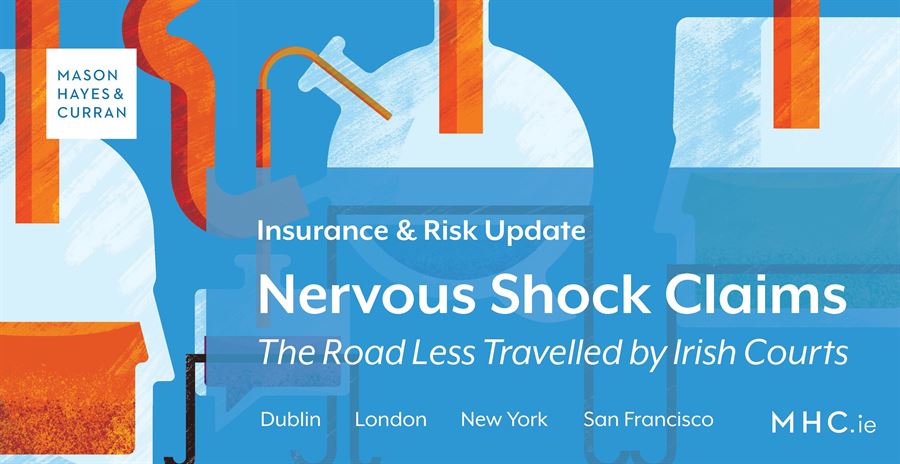
The recent High Court case of Lisa Sheehan v Bus Éireann/Irish Bus and Vincent Dower[1] presents a useful summary of the law on negligently inflicted psychiatric injuries, or nervous shock as it is commonly referred to by the courts.
The case to be determined
Lisa Sheehan was driving home one evening in January 2017 when she came across an accident. Although she did not witness the accident directly, some debris hit her car and she described witnessing a partially decapitated body at the scene.
Ms Sheehan alleged that she developed post-traumatic stress disorder, or PTSD, as a result of what she witnessed. She claimed that she missed work for an initial period of approximately five weeks and was later absent for further short periods. Ms Sheehan ultimately left her job as a hairdresser in February 2019 and claimed that this was because of the effects of the accident.
The defendant did not dispute that the accident was caused by their negligence and did not call any witnesses. The medical evidence was agreed, which meant that the matters to be determined by the court were:
- The nature and scope of the duty of care not to cause a reasonable foreseeable psychiatric injury to a person who is not directly involved in an accident caused by a breach of duty, and
- Whether the law recognises a right of recovery for the psychiatric consequences of witnessing an accident in circumstances where the primary victim is the wrongdoer rather than the blameless third party?
2.jpg) A duty of care?
A duty of care?
On the first point, Mr Justice Keane cited the leading authority on negligently inflicted psychiatric injury, Kelly v Hennessy[2], which sets out a five step test to succeed in a similar action. Ms Sheehan satisfied the first four principles, which were:
-
She suffered a recognisable psychiatric injury
-
This injury was shock induced
-
This injury was caused by the defendant’s negligence
-
There was an actual or, in this case, apprehended physical injury
The fifth principle formed the basis of most of the court’s consideration. This was whether or not the defendant owed the plaintiff a duty of care not to cause a reasonably foreseeable psychiatric injury.
The defendant sought to rely on English case law which sets out a restricted category of victims who can succeed in nervous shock claims. They argued that under this categorisation Ms Sheehan was “merely a secondary victim” and therefore not entitled to seek damages.
Mr Justice Keane was of the view that this type of categorisation of victims was not applied by the Irish courts, although he did discuss it at length.
He found that in this case, there was a duty of care owed to Ms Sheehan not to cause her a reasonably foreseeable injury in the form of psychiatric illness.
A right of recovery?
The defendant submitted further English case law[3], which argued against imposing liability for psychiatric injuries to a third party who witnesses a defendant’s self-inflicted injury
Mr Justice Keane felt that this position was contrary to the Irish Constitution and would be capable of causing unfairness and injustice in our legal system.
He held that the defendant was liable for Ms Sheehan’s psychiatric injuries, suffered as a result of witnessing the defendant’s own injuries.
The Court awarded the plaintiff general damages in the sum of €65,000 to date and €20,000 into the future.
Conclusion
It is clear from this decision that the Irish courts remain reluctant to adopt the categorisation of nervous shock victims as “primary” or “secondary” victims. Mr Justice Keane has reiterated that the starting point for determining liability in a claim for negligently inflicted psychiatric injuries are the principles set out in Kelly. This case also demonstrates that a person acting upon civic-impulse in getting involved in the aftermath of an accident is likely to be owed a duty of care.
For more information on successfully defending similar claims, contact a member of our Insurance & Risk team.






